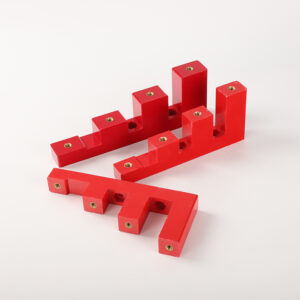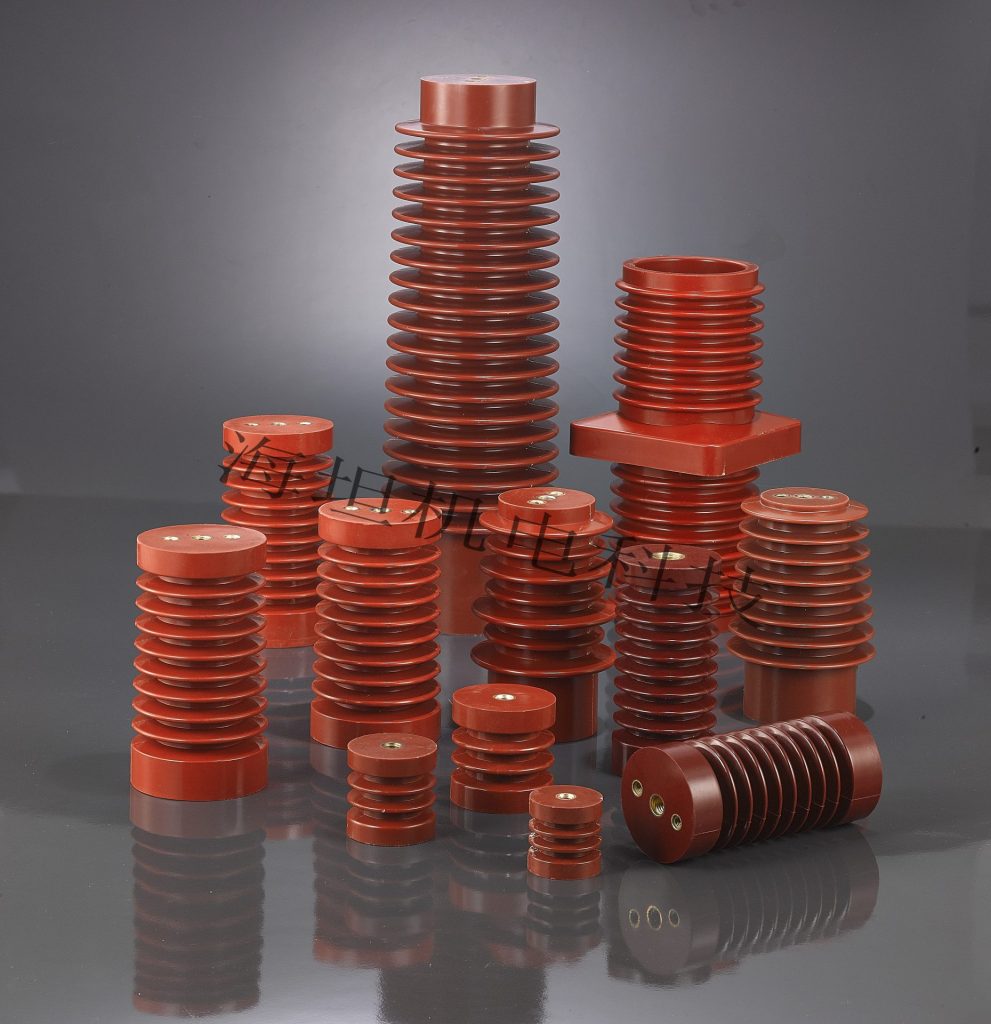The role of CT/CJ insulators in distribution boxes
CT/CJ insulators play an important role in maintaining the safe and stable operation of distribution boxes. This guide will walk you through the purpose, types, and benefits of CT/CJ insulators in distribution boxes.
1.What Are CT/CJ Insulators?
CT (Current Transformer) and CJ (Current Junction) insulators are specialised components used to provide electrical insulation and mechanical support for distribution boxes. They provide a barrier between live electrical parts, preventing unwanted electrical flow that could lead to system failures, short circuits or even fire hazards.

Key features of CT/CJ Busbar support insulators:
Material: Typically made from high quality insulating materials such as porcelain, epoxy resin or composite polymers. These materials provide electrical insulation and durability.
Design: Designed to withstand high voltage, mechanical stress and environmental factors such as heat or moisture.
Function: Act as a support structure and insulator, maintaining the integrity of the electrical system.
Think of them as the unsung heroes of electrical systems – they don’t get much attention, but without them, chaos would ensue.
2.Why are CT/CJ insulators so important in junction boxes?
Junction boxes are the core components of the overall electrical power system. They are responsible for managing the distribution of power to different circuits, and CT/CJ busbar support insulators are key components in ensuring the normal operation of distribution boxes by providing effective insulation protection for electrical components in the distribution box, making them essential for the following reasons:
2.1 Ensure safety
Prevent short circuits: CT/CJ insulators can prevent current from flowing where it should not, thereby protecting users and equipment and preventing distribution box components from malfunctioning due to short circuits.
Reduce fire hazards: By controlling current, CT/CJ insulators can minimise the risk of overheating and fire in circuits and electrical components in the distribution box.
2.2 Improve efficiency
Stable current: CT/CJ insulators help the various components of the distribution box to operate stably, ensuring a continuous supply of power to the connected equipment.
Reduce power loss: Due to their efficient insulation performance, CT/CJ busbar support insulators can also prevent energy leakage, thereby improving the overall efficiency of the system.
2.3 Improved durability
Withstand harsh conditions: CT/CJ insulators are designed to withstand heat, humidity and voltage fluctuations, giving your switchboard a longer life.
Protects components: By providing efficient electrical insulation and mechanical support for other components, they extend the life of the entire system.
3.Types of CT/CJ insulators
Not all CT/CJ insulators are the same. Depending on the application and environmental conditions, different types of insulator are used. Here are the main types:
3.1 Porcelain insulators
Durability: Porcelain is known for its robustness and resistance to extreme temperatures.
Applications: Often used in industrial environments or transmission lines where reliability is critical, such as cross-arm insulators for high voltage transmission lines.
3.2 Epoxy insulators
Lightweight and compact: Ideal for modern switchboards where smaller components are required.
Advantages: Provides excellent electrical insulation and is resistant to moisture.
Example: Ideal for residential and commercial applications.
3.3 Composite Insulators
High strength to weight ratio: Made from advanced polymers, combining strength and flexibility.
Weather resistant: Ideal for outdoor switchboards exposed to harsh weather conditions.
Example: Used in solar power plants where resistance to UV exposure is critical.
4.Common Applications of CT/CJ Insulators
As an essential component in modern power systems, you will find CT/CJ busbar support insulators in a variety of environments. Here are some common application scenarios:
4.1 Residential distribution boxes:
CT/CJ insulators ensure the safe flow of current in home distribution boxes. Prevent safety hazards such as short circuits and fires.
4.2 Commercial building distribution boxes:
CT/CJ insulators rely on their efficient electrical insulation performance to help distribution boxes handle higher power loads in offices, shopping malls and other facilities. Keep the system running efficiently without interruption.
4.3 Industrial plant distribution boxes:
High-voltage heavy equipment in industrial production is generally managed by an independent power management system. Their distribution boxes are also inseparable from CT/CJ insulators, which not only ensures the stable operation of the distribution box, but also improves operational safety and efficiency.
4.4 Renewable energy systems:
Solar and wind energy systems rely on CT/CJ insulators to maintain stability. Protect sensitive equipment from voltage fluctuations.
5.How to choose the right CT/CJ insulator for your junction box
Choosing the right insulator may seem difficult, but in fact you can easily select the right CT/CJ insulator by following these steps.
5.1 Rated voltage
When selecting CT/CJ insulators for junction boxes, you must first ensure that the insulators match the voltage capacity of your junction box system.
5.2 Material selection
Select the correct material according to the application environment. For high temperatures, choose porcelain insulators. For light, compact and moisture resistant use epoxy resin insulators. For windy and rainy outdoor environments, choose composite insulators.
5.3 Application
Select CT/CJ insulators according to your specific application scenario or environment. For example, lightweight and compact epoxy insulators may be preferred for residential distribution boxes, while durable, high-capacity and corrosion-resistant composite insulators may be preferred for industrial and outdoor environments.
5.4 Manufacturer quality
It is also very important to choose a manufacturer with reliable product quality and full certifications. Haitan, founded in 1999 and serving the power industry for 22 years, is a manufacturer specialising in the design, development and production of distribution cabinets and high and low voltage insulators. It has passed CQC, CCC, ISO9001, ISO14001, ISO45001, Rosh and CE certifications, which can ensure the quality of its products.
Summary
CT/CJ Busbar support insulators may not be the flashiest component in a switchboard, but there’s no denying that they’re one of the most important. From preventing electrical hazards to increasing efficiency and durability, these insulators are the backbone of a reliable power system.
Whether you manage a residential project or an industrial facility, understanding the role of CT/CJ Busbar support insulators can go a long way in helping your power system. So, the next time you see a switchboard, you’ll understand how CT/CJ Busbar support insulators in the switchboard protect the stable operation of the switchboard and how to choose the right insulators in the future.
FAQS
Q:How often should CT/CJ insulators be inspected?
A:It is recommended that an inspection is carried out annually or whenever a major change is made to the system.
Q:Can the same busbar support insulators be used for indoor and outdoor systems?
A:Not necessarily. Outdoor systems require weather resistant materials such as composite, whereas indoor systems are better suited to epoxy.
Q:Is it expensive to replace CT/CJ insulators?
A:Not normally. The cost depends on the material and size, but replacing the insulator is relatively inexpensive compared to system failure.
--- END ---
© Copyright 2024 China Haitan Electromechanical Technology Co., Ltd. All rights reserved.SUPPORT BY:JUNJ Privacy Policy

 E-mail:
E-mail:  No. 20 Lingyun Road, Dongfeng
No. 20 Lingyun Road, Dongfeng 
